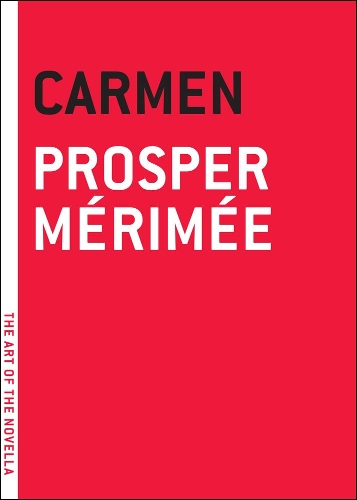
Carmen
(Paperback)
Available Formats
Publishing Details
Carmen
By (Author) Prosper Merimee
By (author) George Burnham Ives
Melville House Publishing
Melville House Publishing
15th August 2013
United States
Classifications
Physical Properties
Paperback
64
Width 127mm, Height 178mm
109g
Description
Carmen is the basis of one of the post popular operas in the world, one that has been filmed more than any other. Yet even many fans of the opera don't know that this classic story is based on an equally exciting novella. Set in 1820s Spain, it tells the tragic tale of Don Jose, a na-ve soldier who is seduced by the wiles of the fiery gypsy Carmen. Carmen contains all the key events in the opera, including gripping Zorro-like action scenes with sword-fights and horse chases. It even contains plot lines that never made into the opera.
Author Bio
Prosper Mrime was born into a family of artists in Paris in 1803. He studied law and languages in school, and in 1825, he published his first book, Le Thtre de Clara Gazula purported translation of plays written by a Spanish actress and translated by one Joseph LEstrange. He followed this up with another translation of a selection of folk ballads under the title La Guzla. No less a personage than Pushkin was convinced, quoting a few of the ballads in his own work. In 1834, Mrime was appointed inspector-general of historical monuments, a job for which he was uniquely suited with his linguistic and scholarly skills. He successfully led a protest movement to save the medieval walled city of Carcassonne from destruction and, with his friend George Sand, rediscovered the Lady and the Unicorn tapestries lying neglected in a provincial chteau. On a journey to Spain he became friendly with the Countess of Montijo, whose daughter Eugnie would marry NapeleonIII. When the emperor acceded to the throne, Mrime was made a senator. His correspondence with such figures as Stendhal and Anthony Panizzi, the librarian of the British Museum, was legendary for its wit and intelligence, and Mrimes novellas on historical and supernatural themes, including Colomba and La Vnus DIlle, are some of the finest of the romantic era. He died in 1870 in Cannes.
George Burnham Ives (18561930) also translated the work of George Sand and Honor de Balzac.
